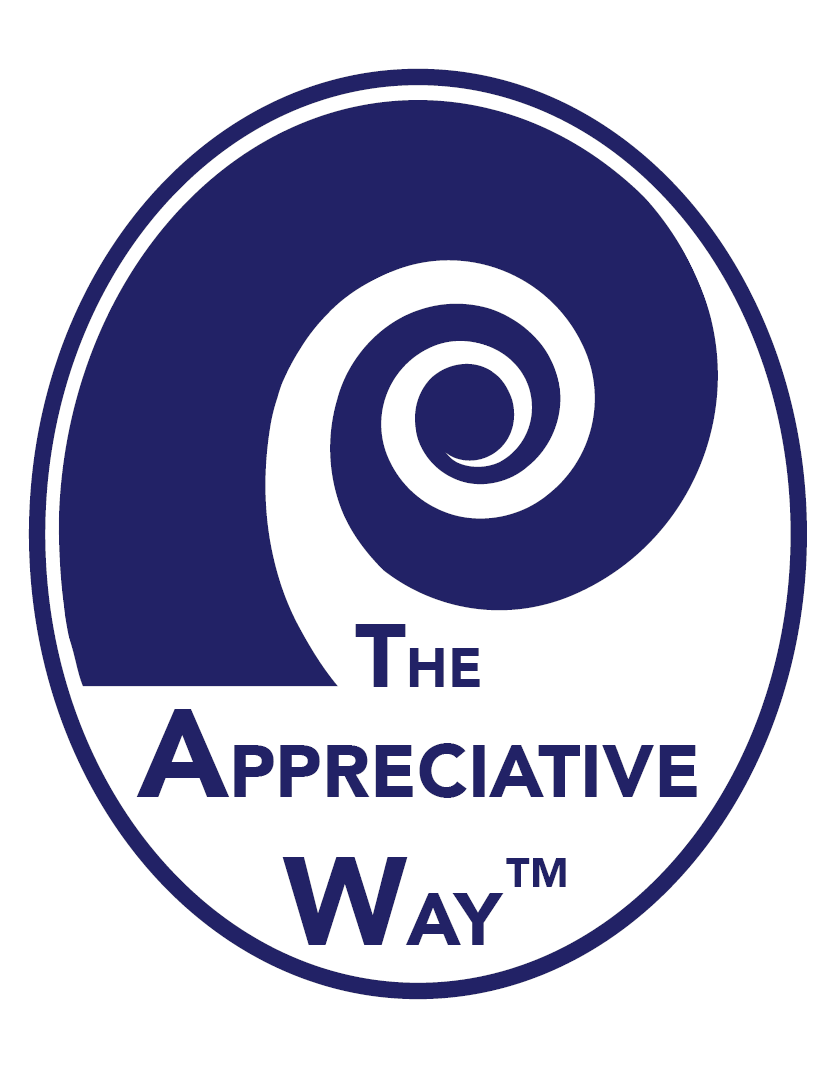

Rob Voyle's Appreciative Way Blog
Additional Articles By Year: 2016 | 2015 | 2014 | 2013 | 2012 | 2011 | 2010
Transforming Victim Narratives: Mark 7:24-30
Posted: June 9, 2012 by Rob Voyle
Have you ever tried, unsuccessfully, to help someone with a victim narrative?
I know in my own church ministry and as a coach and therapist people with big victim narratives can be a real frustration. They continually report they feel like a "worm" and you tell them no you are not, you're a child of God, or something similar, but they never get it. Week after week they say their line, you say yours, and nothing changes. Actually your arguing against their position just keeps their position in balance. What you need to do is radically unbalance their position if you want to bring transformation and healing.
This week we have the story of the Syrophoenician or Canaanite woman whom Jesus calls a dog. I realize there are many ways to interpret this story, especially how Mark is using it in context to explore Jesus mission to the Gentiles and not just the Israelites.
Personally I read this story as a healer and I am fascinated by the strategy Jesus uses to bring transformation. The great healers in the mystical tradition often use "crazy wisdom" as Buddhists call it to bring about transformation. It is often bizarre, paradoxical, ambiguous, and may rely on the telling of parable or indirect communication rather than direct or literal statements. Jesus is one such healer, and this Sunday's Gospel is a good example.
The woman is an outcast and her daughter is possessed. This is a person who is likely to have a very powerful alienation narrative, much like those people with victim narratives that can drive us crazy. They will fall at your feet begging and wailing for help, maximizing their victim potential, because that's the way they have learned to be noticed and get help. And they will what they can get but never give up their victim consciousness because that is how they get help.
So Jesus has a dilemma. Simply healing the daughter would reinforce this pattern of behavior. Ignoring her would also reinforce the behavior and the beliefs that motivate such behavior.
So what does Jesus do? Rather than arguing against her alienation narrative he agrees with her narrative and even ratchets it up a few notches calls her dog and says it wouldn't be fair to give such dogs the real children's food. Now the woman's story is unbalanced. if she really believed it she would slide on down the slippery slope of alienation into the hell of despair. The only way she can achieve internal balance is to argue against her alienation narrative. She gets in Jesus' face and tells him: "you may call me a dog sir, but even the dogs are worthy to eat the crumbs from the master's table." In Matthew's version he says it is this faith - her fundamental belief that she is worthy of belonging at the table - that has facilitated her daughters healing.
As a coach I have used this paradoxical strategy with remarkable success. The next time you find yourself arguing against a person's victim narrative, stop and simply agree with it, maybe exaggerate it a bit and see what happens. I think you'll be surprised.
If you would like to learn more about Jesus' tender, fierce, and, mischievous way of compassion and how you can use it in your ministry I invite you to attend one of my Introduction to Appreciative Inquiry training programs where we look at the subject in considerable detail.
Rob Voyle
Additional Articles By Year: 2016 | 2015 | 2014 | 2013 | 2012 | 2011 | 2010
Previous Posts By Category
Coaching
- I Saw Satan Fall From Heaven
- Church Growth Makes Absolutely no Sense
- Agents of Change or Agents of God, and What's Christmas Got to Do With It?
- Are You Using the Right Map?
- Coaching: Paul's Conundrum Explained
- Goals Must Be Imaginable
- Coaching Next Steps to Achieving Goals
- Shaman 101: Change the Question
- Changing the Paradigm of Blame
- The Sermon I Need to Hear this Christmas
- Blue Christmas Meditation
- What's the Purpose, What's My Purpose?
- Church Growth and Making Disciples
- Thinking about Language: Are People Assets or Treasures?
- Transfiguration and Agents of Transformation
- Managing Resistance to Change
- Ensuring Change is a Blessing
- Growing Leaders Through Intentional Coaching
- Forget Balance, Get Integrated!
- Get Feed-Forward not Feed-Back
- The Power of Great Questions
Forgiveness
- No Reconciliation Without Repentance
- Moving Mountains of Resentment and Uprooting Mulberry Trees of Misery
- Teach Your Congregation to Forgive: Five Week Lenten program
- Forgiveness and Standing Silent Before the Pilates of this World
- Transforming Anger Into Practical Compassion
- Teaching Forgiveness and Staying in Love
- Stick with Love if You Want Others to Change
- I Tried, But I Just Can't Forgive: Part II
- I Tried, But I Just Can't Forgive: Part I
- The Power to Resolve the Past Is Within You?
- Teach Them How to Forgive this Sunday
- Transforming Victim Narratives: Mark 7:24-30
- 9/11: Resentment, Forgiveness, and Reconciliation
Leadership
- Parishioners and Staff are Treasures not Assets
- Anglican Primates: My Appreciative Way Perspective on the Conflict
- Leadership is About Empowering not Controlling
- Who is the Greatest: Calling Forth the Best
- Discovering the Power of an Ennobling Dream
- Incarnational Leadership
- Core Leadership Competencies: Three Ways of Being a Leader.
- Core Leadership Competencies: The Art of Wise Pruning.
- Core Competencies for Being Your Congregation's Chief: Asking Powerful Questions.
- Core Leadership Competencies: Empowering Others
- Core Competencies for Being Your Congregation's Chief
- Creating Sustainable Change through Incarnational Leadership
- The Challenge of Growing the Church
- All Sustainable Change is an Inside Job
- The Importance of Understanding Your Purpose
- Thinking and Acting Like a Leader
Performance Review
Sermon
- Those Damn Foreigners!
- No, You Don't Want to Take Your Ministry to the Next Level
- Why Be Good
- Teach Us to Pray
- We Are God's Chosen People Not God's Protected People
- Easter and Three Stories When Bad Stuff Happens
- An Appreciative Lent
- Remembering Dr. King
- Find Resurrection this Easter not Reincarnation
- Lent, Coaching, Change and Transformation
- Doing the Unexpected this Christmas
- Appreciatively Thinking about Lent and the Ten commandments
- Thinking about Lent, Sin, and Grace
- Lent and an Appreciative Approach to Repentance
Teaching Love
Tigers
Previous Posts By Date
2016
- The Amur Tigers Need You!
- No Reconciliation Without Repentance
- Confessions and Repentance for Election Failure!
- Those Damn Foreigners!
- Moving Mountains of Resentment and Uprooting Mulberry Trees of Misery
- Teach Your Congregation to Forgive: Five Week Lenten program
- No, You Don't Want to Take Your Ministry to the Next Level
- Parishioners and Staff are Treasures not Assets
- Why Be Good
- Teach Us to Pray
- Good Samaritans and What Is Love Calling Us To Do
- I Saw Satan Fall From Heaven
- We Are God's Chosen People Not God's Protected People
- Forgiveness and Standing Silent Before the Pilates of this World
- Transforming Anger Into Practical Compassion
- Teaching Forgiveness and Staying in Love
- Church Growth Makes Absolutely no Sense
- Anglican Primates: My Appreciative Way Perspective on the Conflict
- Stick with Love if You Want Others to Change
2015
- Agents of Change or Agents of God, and What's Christmas Got to Do With It?
- Teaching People How to Say Yes to Sex
- Leadership is About Empowering not Controlling
- Who is the Greatest: Calling Forth the Best
- What in God's name is Going On Here?
- I Tried, But I Just Can't Forgive: Part II
- I Tried, But I Just Can't Forgive: Part I
- The Power to Resolve the Past Is Within You?
- Are You Using the Right Map?
2014
- Christmas: God the slow learner, but thank Jesus, God learns!
- People in the Church Love Change!
- Teach Them How to Forgive this Sunday
- Coaching: Paul's Conundrum Explained
- Goals Must Be Imaginable
- Coaching Next Steps to Achieving Goals
- Mutual Ministry Valuation
- I Hate Performance Reviews: Creating Cultures of Excellence
- Why did Christianity Flourish: The Power of Your Easter Story
- Easter and Three Stories When Bad Stuff Happens
- Shaman 101: Change the Question
- The Search Process: It is not Dating
- Discovering the Power of an Ennobling Dream
2013
- Incarnational Leadership
- Changing the Paradigm of Blame
- Core Leadership Competencies: Three Ways of Being a Leader.
- Core Leadership Competencies: The Art of Wise Pruning.
- Core Competencies for Being Your Congregation's Chief: Asking Powerful Questions.
- Core Leadership Competencies: Empowering Others
- Core Competencies for Being Your Congregation's Chief
- An Appreciative Lent
2012
- The Sermon I Need to Hear this Christmas
- Blue Christmas Meditation
- Remembering Dr. King
- What's the Purpose, What's My Purpose?
- The Language of Growing in Love
- Church Growth and Making Disciples
- Transforming Victim Narratives: Mark 7:24-30
- Creating Sustainable Change through Incarnational Leadership
- Find Resurrection this Easter not Reincarnation
- Lent, Coaching, Change and Transformation
- Thinking about Language: Are People Assets or Treasures?
- From Transfiguration to Tempting Job Offers
- Transfiguration and Agents of Transformation
- Managing Resistance to Change
2011
2010
- The Importance of Understanding Your Purpose
- Thinking about Lent, Sin, and Grace
- Ensuring Change is a Blessing
- Thinking and Acting Like a Leader
- Growing Leaders Through Intentional Coaching
- Forget Balance, Get Integrated!
- Get Feed-Forward not Feed-Back
- Lent and an Appreciative Approach to Repentance
- The Power of Great Questions
The Appreciative Way

Discover the essentials of the
Appreciative Way in this fast
read format book by
Rob and Kim Voyle.
About the Author
Rob Voyle
The Rev. Dr. Rob Voyle is a leader in the development and use of appreciative inquiry in church and coaching settings.
Rob's Approach to Training
- Helpful: Training must provide practical, sustainable solutions for today's challenges.
- Humorous: Creativity and humor go together as people enjoy new insights.
- Healing: I create opportunities for people to experience transformational insights that lead to new ways of living, working, and being in the world.
>>
See more on Rob's
Helpful, Humorous, Healing
approach to training.
